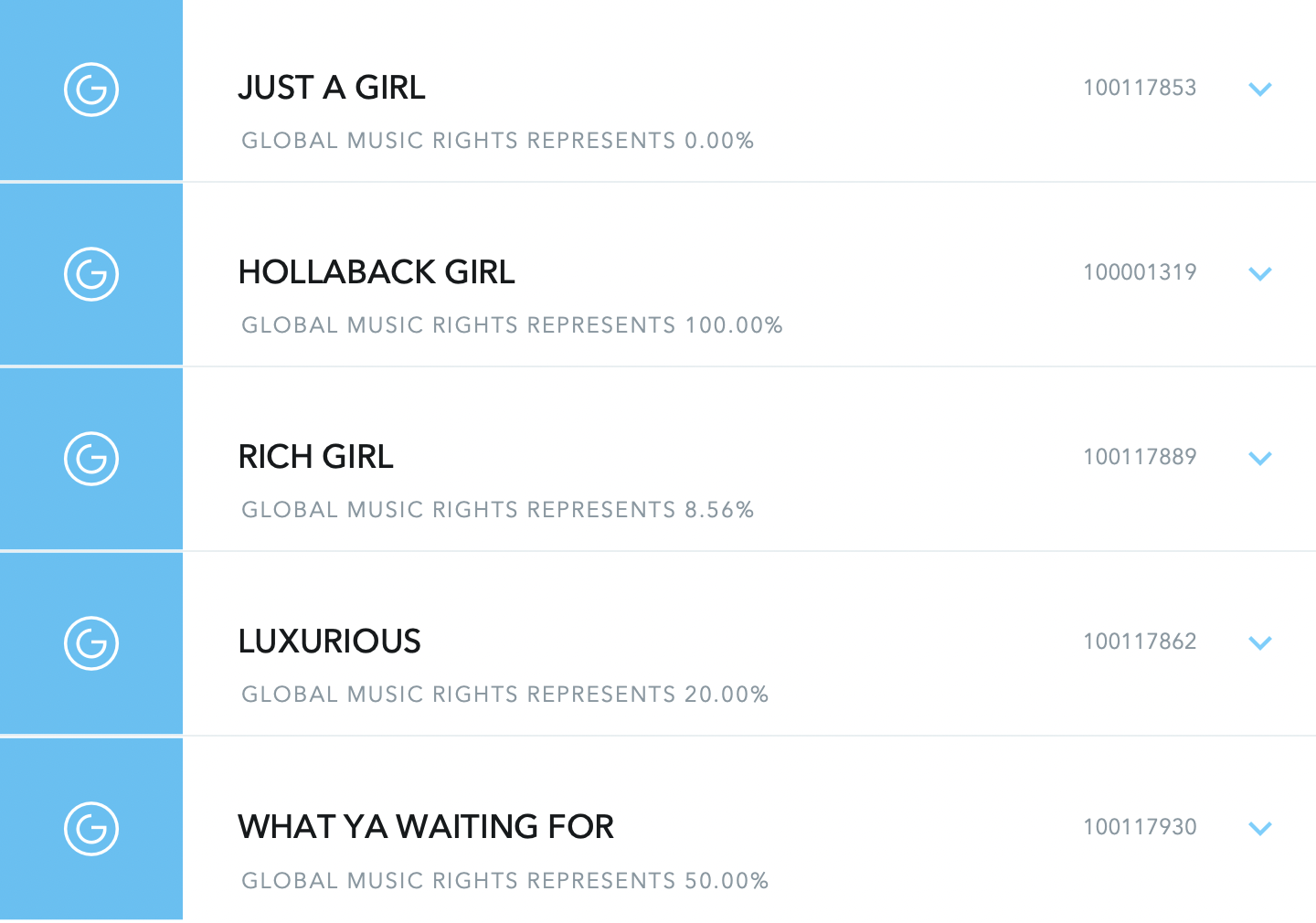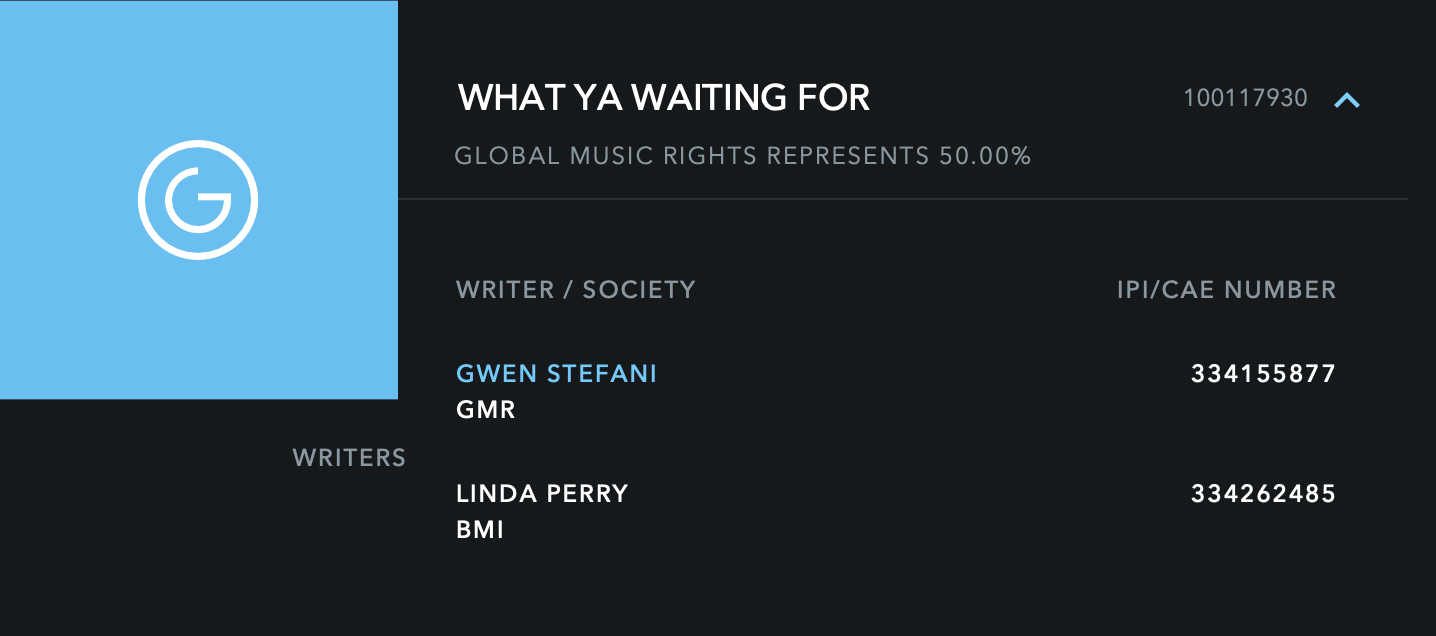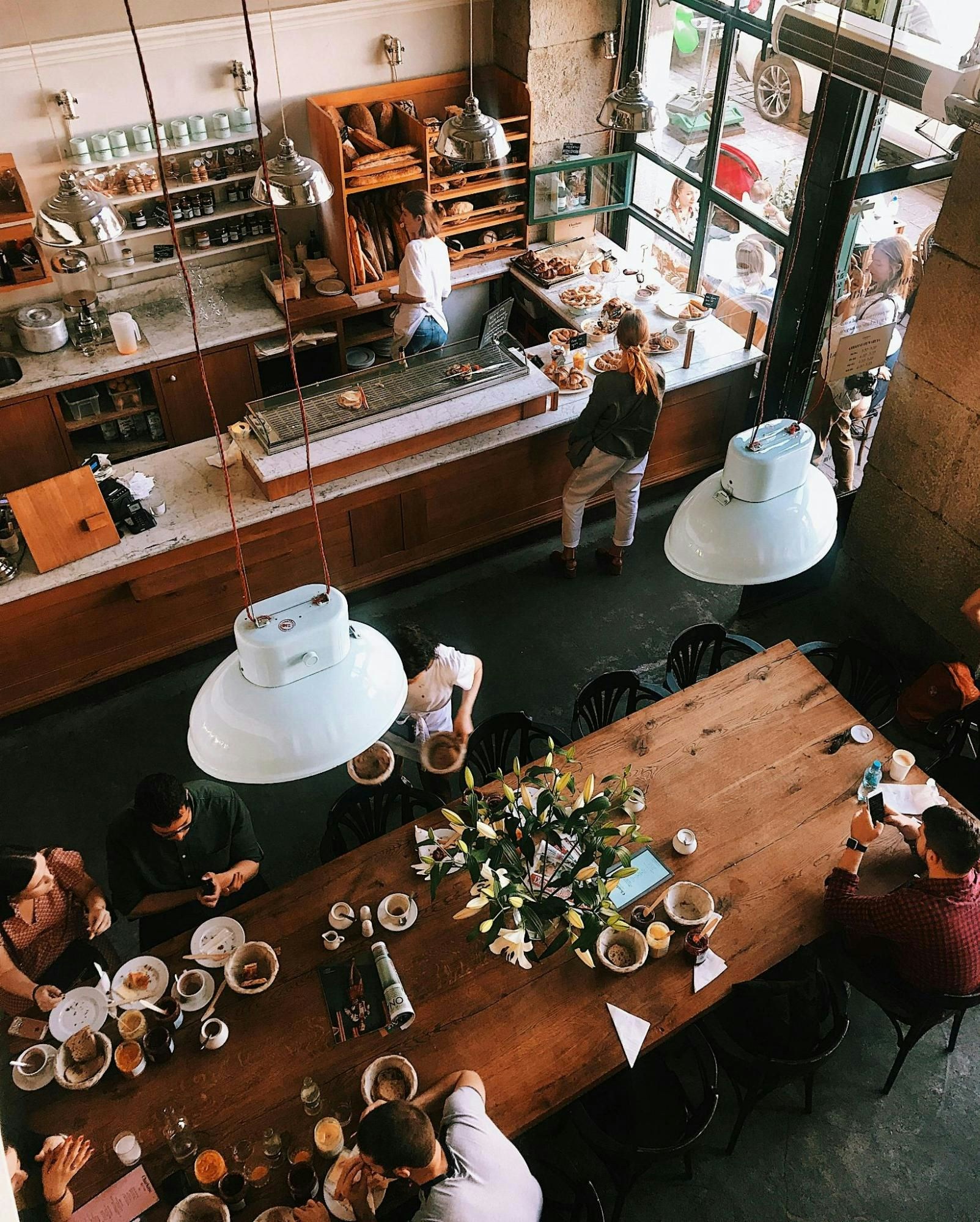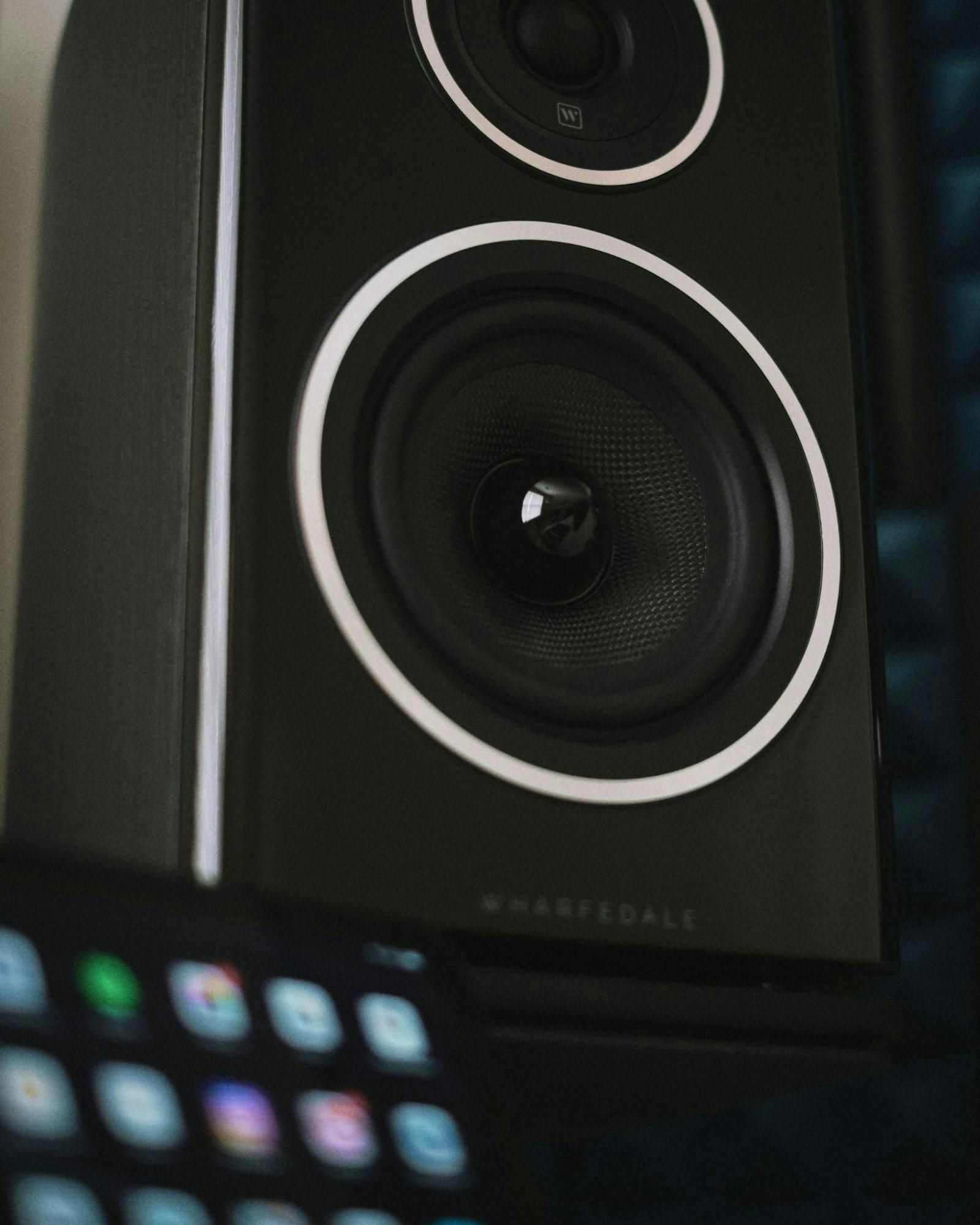Blog
Restaurant Music Licensing - Everything You Need to Know

Music is an essential ingredient for the perfect dining atmosphere. However, even the most well-intentioned restaurant owners may not realize that playing music in a commercial setting comes with legal obligations. Without the proper licenses, restaurants risk significant fines and lawsuits.
For instance, Meadowlark Bar in Colorado faced a $27,000 lawsuit for failing to renew its music licenses, and the Blue Moose Bar & Grill in Kansas was hit with costly legal action over use of just two songs—with a permanent ban on using music from the related licensing organizations.
These cases highlight a harsh reality: whether you’re a small, independent eatery or part of a larger chain, you can be held accountable for copyright infringement if you fail to comply with music licensing laws.
Fortunately, navigating these complexities doesn’t have to be overwhelming. In this article we’ll explore:
The essentials of music licensing for restaurants.
Why compliance is important.
How business-focused music streaming services like Soundtrack simplify the process by bundling all necessary rights into one affordable package.
Let’s get started!
Posted on January 15, 2025
Music Licensing for Restaurants Explained
Music is integral to the restaurant dining experience. It sets the tone, creates an atmosphere, and softens the clinking of silver or glasses. But playing overhead and background music in any commercial setting requires proper licensing.
Globally, there are regulations protecting artists and creators from copyright infringement. For example, violating U.S. copyright law is a federal crime, and penalties can include hefty fines ranging from $750 to $30,000 per infraction. However, penalties for “willful” infringement can climb to $150,000 and there can be criminal penalties in severe cases.
Many restaurant owners mistakenly believe that playing music from personal streaming accounts or digital libraries is allowed without a license. However, consumer services like Spotify, YouTube, SiriusXM, Amazon Music, Pandora, Apple Music, and Tidal are strictly intended for non-commercial, personal use. In fact, their terms of service prohibit public or business-related usage.
Using these platforms in a commercial setting without the proper licenses may constitute copyright infringement and can result in significant legal and financial consequences.
Navigating the complex terms of service for different streaming platforms and understanding the intricacies of copyright law can be overwhelming. Even unintentional mistakes can leave restaurants vulnerable to lawsuits.
To avoid risks, a service like Soundtrack will provide hassle-free, fully compliant music streaming for any commercial setting—allowing you to save time, money, and play the music you want in your restaurant with peace of mind.
Two Copyrights Within Each Recording
In U.S. music licensing laws, every recording comprises two copyrighted works: the underlying musical composition (musical work) and the actual recording (sound recording).
The songwriter (or the writer’s music publisher) usually owns the copyright for the musical work. The recording artist (or the artist’s record label), usually owns the copyright for the sound recording.
Proper licensing ensures that these creators and music rights holders are properly compensated for their work, just as you would pay an employee for their contribution to your business.
It’s worth noting that separate licenses are needed for a venue to play live music or include a cover charge.
Licenses Required to Play and Stream Music in Your Restaurant
The Copyright Act of 1976 remains the primary basis of U.S. copyright law, protecting original works of authorship including musical, dramatic, literary, and other artistic works that fall under the umbrella of intellectual property.
Generally, businesses including restaurants need licenses from labels, publishers, and performing rights organizations (PROs) to play music in their establishment.
Please review these links for music licensing in the United States and internationally.
A public performance license allows you to play a song in a public environment, whether it’s played from a jukebox, over a speaker system, from a TV, or even through a karaoke machine. Usually, public performance rights are obtained from the PRO or PROs representing the licensees.
There are four PROs in the U.S. that manage, collect, and distribute public performance royalties:
ASCAP (American Society of Composers, Authors, and Publishers)
BMI (Broadcast Music, Inc)
GMR (Global Music Rights)
In Canada, the performing rights society is SOCAN. Here’s a link for full details on Canadian music licensing for music in your restaurant.
A music service like Soundtrack can handle the complexities of music licensing to help ensure your restaurant is compliant and protected from lawsuits.
Most often, subscribing to a streaming music service for business is less expensive than securing licenses directly from each individual PRO.
For example, with Soundtrack, a restaurant or coffee shop larger than 2500 square feet can access, customize, and play from a fully licensed catalog of over 100 million songs for just $420 to $582 per year—versus $1400 to $1900 in fees alone to acquire a license directly from the PRO.
Do I need a separate license to play live music in my restaurant?
If a restaurant hosts live performances, such as bands or DJs who play copyrighted music including covers, the restaurant owner will need a separate or additional license for live music from the PROs.
Restaurants and bars are liable if musicians play a cover song that you have not paid a live music license to use.
If a live band or musician only plays original music, a license may not be needed.
Unfortunately, PROs often don’t mention that you need to be licensed with ASCAP, BMI, GMR, and SESAC at the same time. There have been many instances where a bar or restaurant received demand letters from one PRO even though they hold a license with another PRO.
For more information about the nuances of restaurant music licensing, read our interview with a music lawyer.
Common Mistakes That Expose Restaurant Owners to Lawsuits
Obtaining a blanket license from one PRO, such as ASCAP, gives you permission to play music from numerous artists and copyright holders under a single legal agreement. However, most popular songs will be only partially licensed to a single PRO, so you’ll be limited to playing music ONLY from songwriters in their catalog.
For example, if you want to play music by Gwen Stefani, a blanket license from GMR would at least partially cover many of her hits:

As you can see, GMR represents 100% of the writers of “Hollaback Girl.” You could play that song with a blanket license from GMR only and have no reason to worry about a lawsuit. But if you want to play her other songs, you’ll need additional licenses.
For example, GMR represents only 50% of the writers of “What Ya Waiting For.”

That song was co-written by a writer represented by BMI. This is pervasive in the music industry.
For any given artist, it’s highly unlikely that a blanket license from one PRO would cover all of their hits, because there are almost certainly co-writers that belong to another PRO. If partial rights are owned by ASCAP, for example, you would need a license from them as well to be in full compliance.
Here are the databases for major PROs to verify song coverage:
Another option that will help you save money (up to 90% in some cases!), eliminate risk, and ensure you’re only playing fully licensed tracks is to sign up for a service like Soundtrack that offers music streaming for restaurants.
Soundtrack bundles all of the required licenses together to simplify the buying process, so instead of dealing with multiple organizations, you deal with one.
The Cost of Music Licensing (and Noncompliance)
While playing a carefully curated playlist is one the most cost-effective ways to differentiate your brand, music licenses for restaurants are a necessary expense if business owners play music for their guests.
These fees are typically based on factors such as:
Your type of business.
Square footage and/or capacity of the venue.
Whether the music is live or recorded.
Frequency of the use of the music.
The cost of a restaurant music license can range from a few hundred to several thousand dollars per year, depending on the specific circumstances of the establishment.
Although music licensing fees may seem like an unnecessary additional cost for restaurant owners, non-compliance and playing unlicensed music poses a significant financial risk. Refusing to pay a licensing fee or ignoring communication from PROs can land you on the losing side of a fine or a lawsuit, and the costs could shutter a business.
For example, a Raleigh, North Carolina, restaurant owner was ordered to pay more than $40,000 in fines and legal fees to BMI for illegally playing music in their establishment. The restaurant folded shortly thereafter.
Another PRO, ASCAP, warns small businesses that ignore the copyrights of its member artists: “In past cases, several venues that could have paid ASCAP a very reasonable and affordable license fee ended up paying far more in damages in accordance with the law. It’s not a surprise that judges would decide in favor of ASCAP songwriters in these cases given Federal copyright law.”
Common Questions About Restaurant Music Licensing
If you have a question that we don’t answer here, please contact us.
Do restaurants need licenses to play music?
Yes, restaurants typically need licenses to play live, streamed, or recorded music. This is because music played in public spaces is considered a "public performance," which requires proper licensing to compensate the creators and rights holders.
These licenses are usually obtained through performing rights organizations (PROs) like ASCAP, BMI, SESAC, or GMR. Using personal streaming services like Spotify or Apple Music in a restaurant without appropriate licensing violates copyright laws.
Do I need both ASCAP and BMI licenses?
Yes, most restaurants need licenses from ASCAP, BMI, and other PROs because these organizations represent different catalogs of artists and songwriters. A single license from one PRO only covers the songs and artists they represent.
To play a broad range of popular music legally, you may also need licenses from SESAC or GMR, depending on the specific music you play. Alternatively, you can use a business-focused music streaming service like Soundtrack that bundles these licenses together.
How much is an ASCAP license for a restaurant?
The cost of music licenses from ASCAP, BMI, and other PROs varies depending on factors such as the size of the venue, whether or not there is a cover charge, and how music is used—for example, background music vs. live performances.
Restaurants can contact each PRO directly for an exact quote, or let Soundtrack handle all the licenses you need in one place. Here’s a full breakdown of Soundtrack’s plans and pricing.
Can I avoid paying PROs by licensing music directly with the songwriters and publishers?
It is possible to bypass PROs and license music directly from the copyright holders. Some businesses want to do this to support local unsigned artists. However, this can be a tricky and time-consuming process, and you should speak to a music attorney before attempting this.
Can a restaurant play music from a radio station or TV?
In some cases, yes. But this gets complicated. There are exceptions in the Copyright Act that allow this, as long as the restaurant or business doesn’t charge customers to hear the music and is of a certain size.
A restaurant or bar must be less than 3,750 square feet in size. If the restaurant is larger, and fulfills one of the following criteria, it must secure a license to play the music.
If the music is played over a TV:
There must be no more than four TVs in the restaurant, and no more than one per room.
None of the TVs can be larger than 55 inches diagonally.
The audio cannot be connected to more than six loudspeakers, there can’t be more than four loudspeakers per room or in any outdoor space, like a beer garden or patio.
The music must not be transmitted further than the physical limits of the restaurant property.
If the music is played over the radio:
There can be no more than six speakers, and no more than four in one room or outdoor space.
The music can’t be transmitted further than the physical property boundaries.
Can I put a radio in the kitchen that’s just for the workers?
This can be a legally protected exemption, as long as the music doesn’t bleed into any dining space or area of the restaurant where customers may hear it.
I’m a small business. How would they catch me and why would they care?
Even small, family-owned restaurants are not immune to the risks of publicly playing copyrighted music without the appropriate licenses. Many restaurant owners incorrectly assume copyright holders would only pursue legal action against large or high-profile restaurants that are non-compliant with copyright law.
However, there are plenty of examples of smaller restaurants and bars that have become the target of lawsuits for breach of music licensing laws, and PROs have ways of identifying businesses that are noncompliant.
ASCAP regularly publishes its current list of venues fined for not paying songwriters in their businesses.
Another example, BMI sent “music researchers” to Tadpole’s to document songs the Tampa bar was playing without the necessary music licenses for restaurants. The result was a $30,000 fine that led to the bar closing its doors for good.
Likewise, Amici III Ristorante in Linden, New Jersey, had to pay $24,000 to BMI, $6,000 each for four songs they were caught playing without proper coverage.
The All-In-One Music Licensing Solution
Creating the perfect backdrop for your guests’ dining experience is about more than just serving mouth-watering dishes. It’s about crafting an atmosphere that transports them away from their everyday troubles and into a universe of culinary delights.
Music is pivotal in this transformation, but you must ensure what you’re playing is compliant and pay music creators and copyright owners. Having only an ASCAP license or BMI license is insufficient, unless you’re carefully tracking and only playing music covered by each specific PRO.
Soundtrack offers a comprehensive solution for businesses to use music in their restaurants legally. Monthly and yearly streaming subscriptions cover both sound recording and PRO licensing fees in the U.S. and Canada, including tracking, reporting, and some incredibly helpful made-for-business tools.
This means you don’t need to worry about the complexities of licensing music. Instead, focus on what you do best—serving up delicious food and exceptional service—and let Soundtrack provide the perfect music.
Discover the benefits of Soundtrack for your restaurant today!
Sign up and start listening today
Get our most exclusive features with a no-obligation 14-day trial, unlocking everything available in Soundtrack Unlimited.





